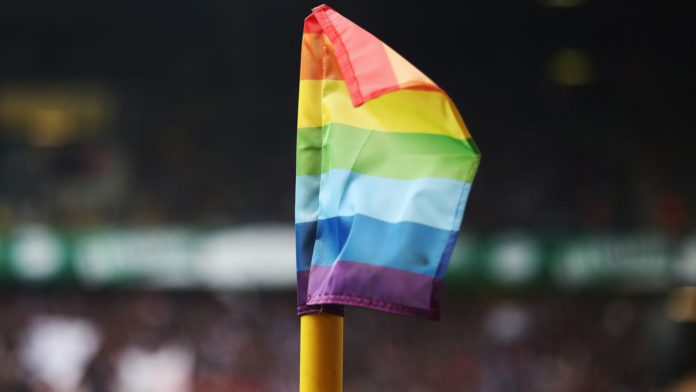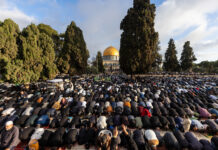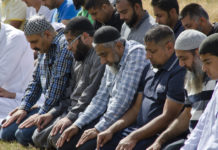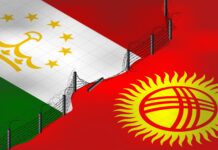Rainbow flags will be allowed in stadiums at the 2022 World Cup after Qatar said it would comply with FIFA rules promoting “tolerance and inclusion” at matches.
Qatar’s World Cup leadership has offered FIFA the assurances that displays promoting LGBT+ rights will not be removed.
“When it comes to the rainbow flags in the stadiums, FIFA have their own guidelines, they have their rules and regulations,” 2022 World Cup chief executive Nasser Al-Khater said. “Whatever they may be, we will respect them. We have a country that’s conservative, however, we are a welcoming country.
“We are open and welcoming hospitable. We understand the difference in people’s cultures. We understand the difference in people’s beliefs and so I think, again, everybody will be welcome and everybody will be treated with respect.
“Just like our culture is a culture of this world, we also expect people to respect our culture. I think there’s a balance and there’s a feeling that people will respect people from everywhere.”
Speaking to the Associated Foreign Press in September 2019, Al-Khater insisted that LGBT+ fans will be safe in Qatar at the World Cup – but said they should refrain from public displays of affection.
“The safety and security of every single fan is of the utmost importance to us,” Khater said at the time. “There’s a lot of training going into security personnel to make sure that things that are culturally different are seen in that frame. Public displays of affection is frowned upon, it’s not part of our culture – but that goes across the board to everybody.”
Subscribe to our newsletter and stay updated on the latest news and updates from around the Muslim world!
Ahead of the staging of the Club World Cup last year, Qatar brought a member of Liverpool’s LGBT+ supporters group – Kop Outs – and his husband to the country to offer assurances that LGBT+ fans will be welcome.
Homosexuality is illegal in Qatar with a punishment of up to three years in prison and a fine for consenting males, and could lead to the death penalty for Muslims under Sharia law. However, there are no known cases that the death penalty was enforced for homosexuality.
Since 2004, Article 296 of the current Penal Code (Law 11/2004) stipulates imprisonment between one and three years for sodomy between men.
In 1998 an American citizen visiting Qatar was sentenced to six months in prison and 90 lashes for homosexual activity.
And in the 1990s, the Philippine Overseas Employment Administration informed Philippine workers that gay workers were prohibited in Qatar. This was in response to several mass arrests and deportations of Philippine workers in Qatar for homosexuality.






















